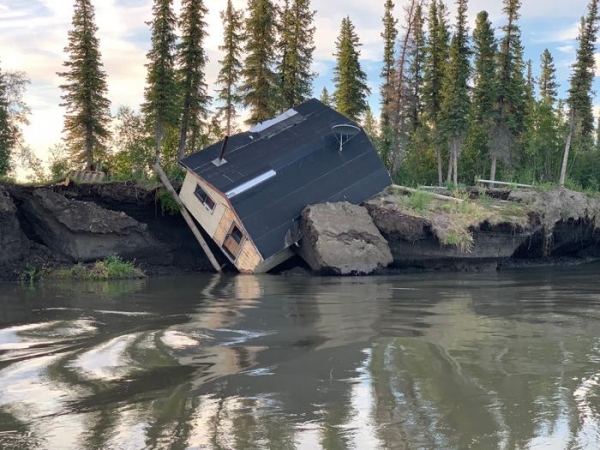First comprehensive pan-Arctic study of social impacts of thawing permafrost soils.
In an interdisciplinary and transdisciplinary study, an international team led by the University of Vienna and the Danish Technical University/Umea University examined the social risks for Arctic regions associated with thawing permafrost. They identified five key risks related to infrastructure, transport and supply, water quality, food security and health. The scientists found that the thawing permafrost posed an increased risk of exposure to infectious diseases and release of contaminants, and interruptions of supply routes. The study has been published in the renowned journal Communications Earth and Environment.
The thawing of permafrost poses various risks to the Arctic environment and the livelihoods of people. Increasingly thawing permafrost soils not only pose a global threat due to the CO2 and methane gas stored in them, but also have far-reaching implications for the approximately three million Arctic residents who live on permafrost soils. Understanding these risks is crucial for informed policy planning and adaptation measures. To identify these risks, the scientists studied four Arctic regions between 2017 and 2023 as part of the "Nunataryuk" project: Longyearbyen (Svalbard, Norway), the municipality of Avannaata (Greenland), the Beaufort Sea region the Mackenzie River Delta (Canada) and the Bulunskiy district in the Republic of Sakha (Russia). The team included engineering and physics scientists as well as environmental, social and health scientists. "The comprehensive risk analysis was made possible by intensive exchange with local stakeholders and permafrost scientists, and for the first time includes not only physical processes but also a comprehensive overview of social impacts of thawing permafrost soils," explains anthropologist and co-study director Susanna Gartler from the University of Vienna.
Read more at University of Vienna
Image: Infrastructure in permafrost areas is threatened by river bank erosion, Mackenzie River Delta, Canada. (Credit: Angus Alunik, 2021)
Sci/Tech Climate Top Stories
